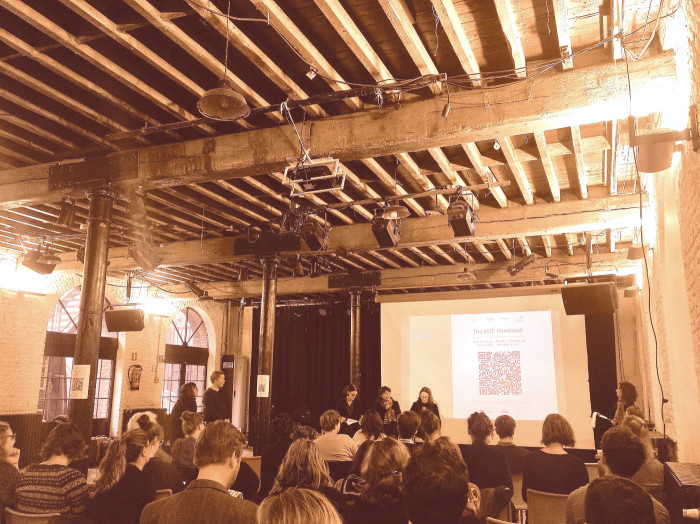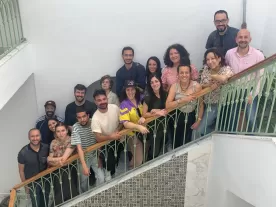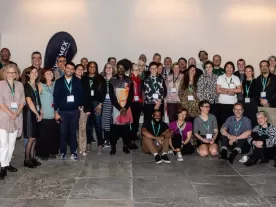‘I am a dancer from Slovenia. I have a show in France and the organiser asked me to get an A1 certificate. What is it? How can I get it?’
This is one of the examples of the many questions Mobility Info Points (or MIPs) receive from artists and culture professionals who are mobile in Europe and internationally.
Mobility Info Points are organisations that help artists and culture professionals with the administrative issues of cross-border mobility, through free information and/or consultation services. Key issues include visas, social insurance, taxes, and customs.
The 21st of November 2023 was a key date for the Mobility Info Points as it was the day of:
- The final presentation of the MIP-Amplifier project supported by ECAS-European Citizen Action Service through an EU re-granting system, with the introduction of three core tools:
- The MIP Handbook, a tool to engage in the strengthening of current MIPs and the creation of new ones in countries not yet covered by an MIP.
- The MIP Data report, an introduction to current trends and characteristics in the mobility of artists and culture professionals in Europe, examined through an analysis of recent MIP consultations and events.
- The MIP website, to facilitate access to the MIPs and additional key administrative resources.
The presentation in Brussels at Pianofabriek was the occasion of a lively discussion with three guest speakers (Catherine Magnant, Head of Unit, Cultural policy unit, Directorate-General for Education, Youth, Sport and Culture (DG EAC), European Commission; Heidemarie Meissnitzer, Counsellor, Arts, Culture and Audiovisual, Permanent representation of Austria to the EU and co-chair of the OMC working group, The status and working conditions of artists and cultural and creative professionals; and Anita Debaere, Director of Pearle* - Live Performance Europe), together with more than 60 representatives from the European Commission (DG EAC and Home), the executive agency (EACEA), EU Member-States’ representatives, European networks, programmes and projects, Brussels-based organisations, MIPs, etc.
The discussion was an opportunity to highlight the unique, key role of the MIPs in the cultural sector – particularly in the direct interaction they have with mobile artists and culture professionals, within which they provide guidance and advice on administrative needs and questions.
Different proposals were made to increase the number of MIPs, particularly in EU countries (with only eight covered at present), including sending the MIP Handbook and the Data Report to EU Member-State representatives, and organising specific info or training sessions to encourage the creation of more MIPs. This conversation echoed another key discussion in Strasbourg on the very same day…
Article 14 of this EP resolution highlights in particular:
‘[The European Parliament] believes that promoting information on social security coordination rules in Europe on cross-border mobility of artists at EU level is necessary and useful for CCS professionals; encourages the Commission and the Member States to strengthen existing or, where not in place, set up new, adequately funded mobility information points as one-stop shops that are easily accessible in all EU languages and will help CCS professionals gather all relevant sectoral information concerning their working conditions, mobility, fiscality and social protection benefits’.
Through the MIP-Amplifier Project and the resolution of the European Parliament, the Mobility Info Points, which are all members of On the Move, feel even more encouraged, equipped and engaged in collaborating with the European Commission and Member-States to strengthen their role and create new MIPs in EU countries that are not yet covered, while remaining connected worldwide.
More information for the MIP-Amplifier project can be found here.
The project is supported by ECAS - European Citizen Action Service, as part of a financial support to third parties (re-granting) scheme under grant agreement 101104626, of which ECAS is the beneficiary for its EURECA 2023 project (European Citizenship Accelerator). This project receives funding by the Citizenship, Equality, Rights and Values programme of the European Union.




